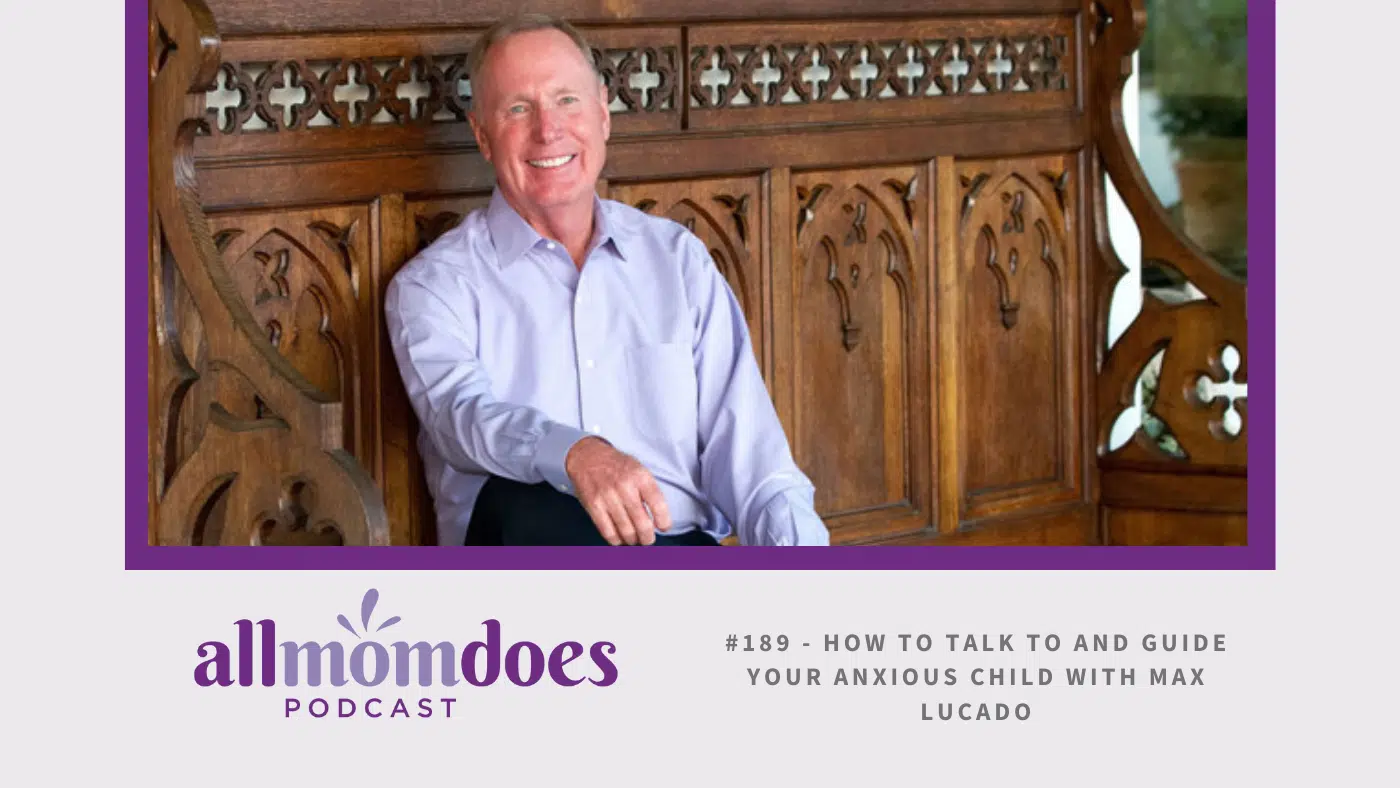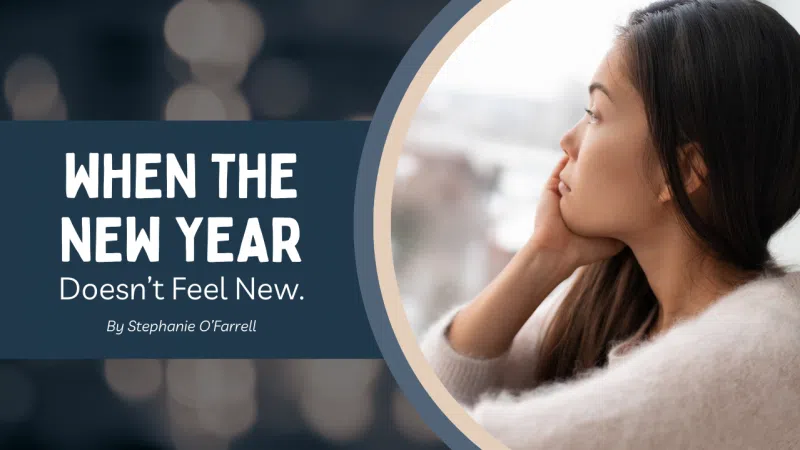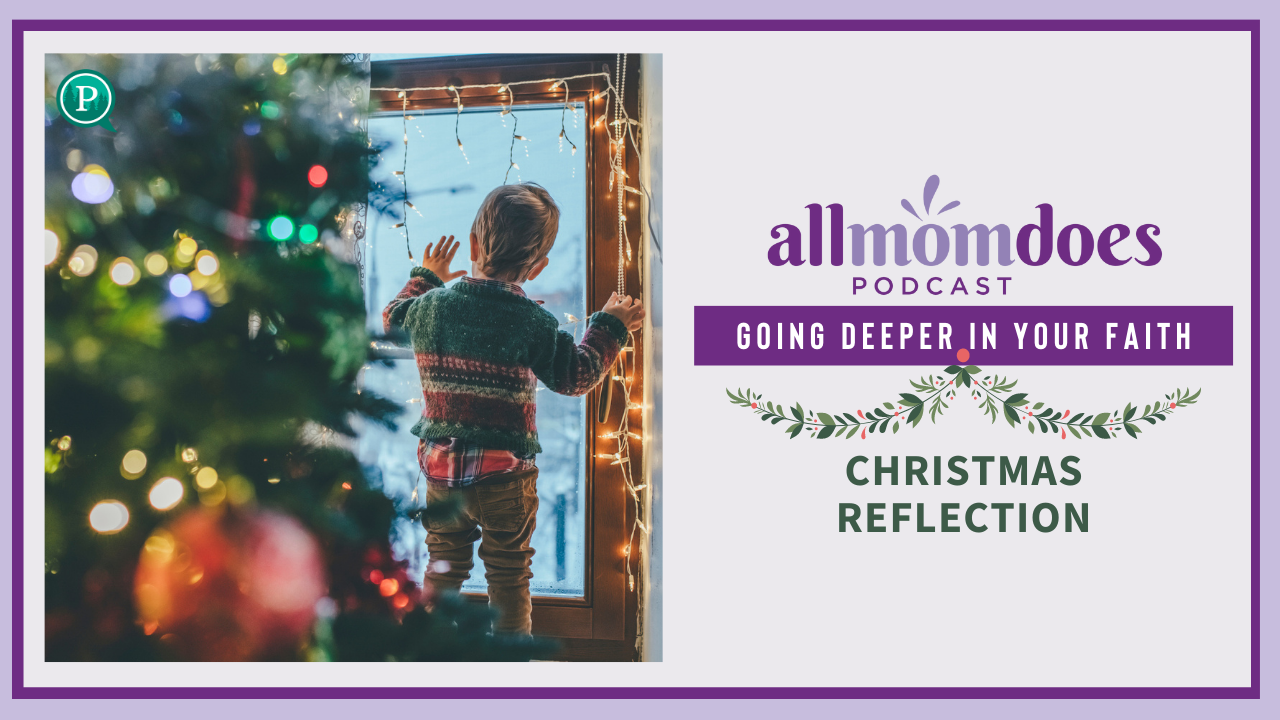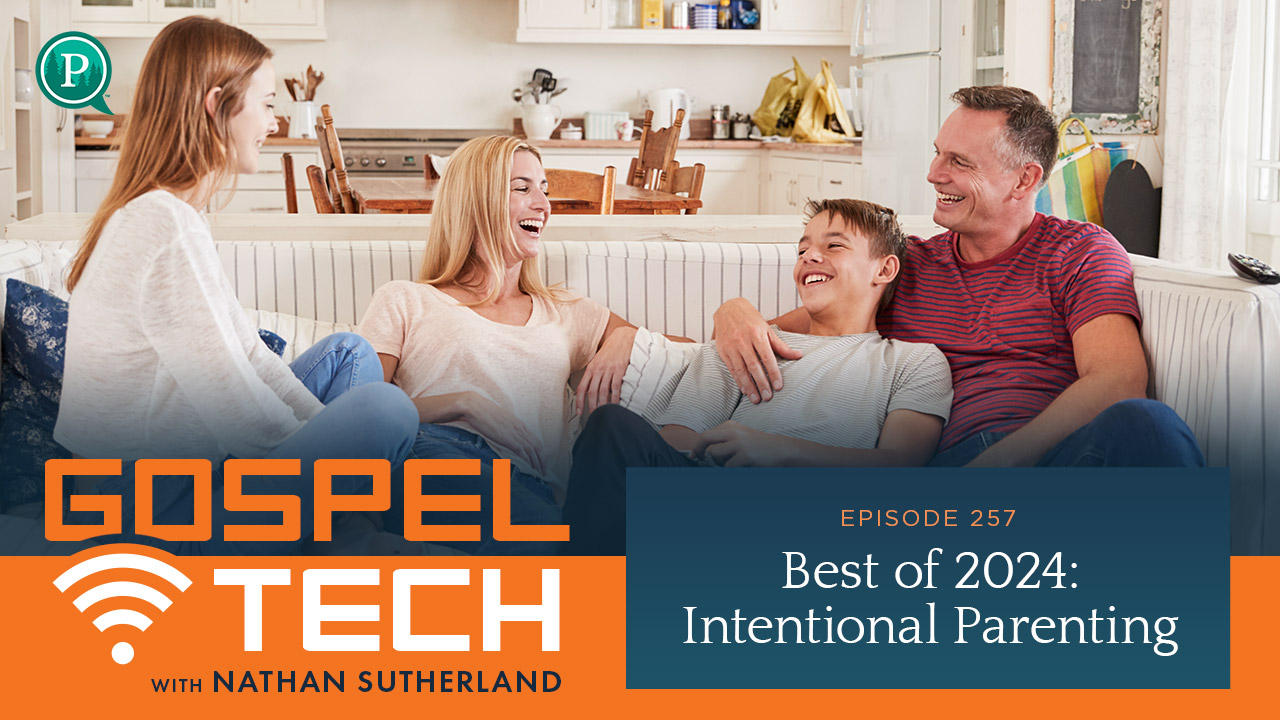Child and teen anxiety rates are through the roof in these stressful days. Best-selling author and beloved faith leader Max Lucado joins Julie Lyles Carr for a conversation about how we can both empathize and encourage our kids when they struggle with anxiety…and what to do about our own anxiety as well.
Listen to “How to Talk to and Guide Your Anxious Child with Max Lucado” on Spreaker.
Interview Links:
- Follow Max Lucado Online | Facebook | Instagram | Twitter
- Pick up Max’s new book “Anxious for Nothing“
Transcription:
[00:00:00] Julie Lyles Carr: You’re listening to the AllMomDoes podcast where you’ll find encouragement, information and inspiration for the life you’re living, the kids you’re raising the romance you’re loving and the faith you’re growing. I’m your host, Julie Lyles Carr. Let’s jump into this week’s episode.
There are a couple of things that are really special about this episode. . So the first is it’s with Max Lucado and this is his third time coming back to the podcast. I’m so honored. Max’s writing has had such an impact in my own writing career. And to know that he wanted to come back on and talk to you, the incredible listener, was really exciting to me.
The second thing that is really interesting to note about this episode is this Max has a real heart right now for kids and teens going through anxiety. You know, it’s pretty interesting. We already saw anxiety levels amongst kids and teens, beginning to rise. And now that the pandemic has been part of all of our histories, we’re finding that anxiety levels for kids are even higher.
And for some of our kids heading back into the classrooms and going back to quote unquote life as normal is going to feel anything but normal for them. As we head into these days ahead of us, all of us trying to come through what has been historic in this pandemic and all of us doing a pandemic for the first time and trying to figure out how to go back into some of the life situations and routines and experiences and do it a healthy and safe way. So Max’s heart for kids who are walking through these kinds of things, the kinds of resources he’s wanting to bring to the table for moms and dads, to be able to talk about anxiety, to be able to talk about emotions. I think you’re going to really find a lot of wisdom and heart and value there.
Now in all of that, Max is approaching this very much from a spiritual place and what we can do as moms and dads. And there is also that place too, to remember that if you have a kid who’s really struggling with anxiety, talk to your health provider. Talk to that licensed counselor. Talk to that therapist.
It’s really important for all of us. As we begin to come through all of these elements, which have made all of us feel pretty insecure and to carry a lot more stress and anxiety than maybe we usually. To make sure we’re getting the help that we need. So today I’m so delighted. So honored to welcome Max lucado back to the AllMomDoes podcast.
Hey, this is your third time on the show. This is, this is you’re setting a record this year. You are my first third time guest. Well, a couple of times for Priscilla Shire on a couple of times, you are, you are cutting ahead. You are nosing ahead of the line.
[00:02:58] Max Lucado: Well, you know what they say better a three timer than a two timer.
[00:03:02] Julie Lyles Carr: We’ll take it. We’ll take it. Well, Max Lucado thank you for being with me today as always. It is so great to get to connect with you and hear what’s going on with you. And I want to hear about a project that you have going on. That’s really interesting to me. You are doing children’s books, which a lot of us have been getting your kids books for a long time for our kiddos.
But it feels like there’s a little bit of a departure in Where Did My Giggle Go and an Anxious For Nothing that you have for young readers. I feel like you’re really doing a deep dive into some of the harder emotions that our kids can experience. What made you decide to go this direction at this time?
[00:03:39] Max Lucado: I’ve had an interest in the whole topic of anxiety, uh, on and off for a well over a decade, you know, I’ve written a book about fear. I’ve written a couple of books about trusting God. And in tough times, uh, I wrote a book that was really directly about anxiety, anxious for nothing. Uh, I think the pandemic really got me Julie, thinking about how all this was affecting our kids.
Uh, These statistics. They’re just, they’re so alarming. They’re, they’re almost impossible to believe. I read one just a month ago. In fact, I’ve got it here because I couldn’t believe it. 91% of people born since 1996 are demonstrating some form of anxiety. Manifestation or depression, 91%. So, so you think about every, every little kid, every little guy gal you see walking up to go to middle school, you know, high schoolers college kids, uh, it’s just devastating.
It it’s it. Right. And so. I’m sorry, I’m kind of rambling to answer your question, but I really feel a heart these days for, for young people. And it’s kind of odd that I, as a 66 year old, you know, with feel a heart for young people, but I want them to know it’ll be okay. I want them to know this isn’t the first time we’ve had to face a global pandemic.
First time that we have. But, but the, the stories in the Bible that exists to help us face these. And so I’ve, I’ve, I think I’m carrying a burden these days for those younger folks. Right.
[00:05:18] Julie Lyles Carr: Right. And that resonates with me because, you know, a couple of my kiddos have really struggled with anxiety and it’s been puzzling to me as a mom thinking, well, you know, we’ve been.
Taking care of things and we’re your mom and dad, and we’re making sure things are buttoned down and what do you have to be anxious for? And this was even happening prior to the pandemic, because I know that we were seeing those anxiety levels reported, anxiety levels rising amongst our younger people.
How do you define anxiety? Because it can be a little bit of a slippery definition. Sometimes those things that we maybe identify as anxiety that maybe aren’t, or those things that could be happening in our emotional base, that maybe we need a little education on. That’s actually anxiety. How do you define it?
[00:06:01] Max Lucado: Yeah. You know, and you’re right. I think that, uh, it’s, it’s kind of difficult to differentiate between fear and anxiety. Sometimes we end up just having our own working definitions, uh, what works for me. Is that, uh, anxiety is a fear. This on steroids fear says there’s a snake in the forest. Anxiety says there’s a snake in the forest and I’m never going in another forest.
You know, a fear says has gotta be careful when you’re driving. Anxiety says you’ve got to be careful when you drive on never getting into another car. It’s, it’s kind of like the house alarm that never goes off. So that anxiety is it’s this wear and tear of our fight or flight. Reaction and it never shutting down.
I like to be real quick to point out that anxiety is not a sin. It’s really not. It’s just an emotion. It’s just an emotion and it can lead to destructive behavior. Uh, but all of us. Ed Thompson, our life in which, uh, we’re going through a lot of change. We’re facing a lot of stress, a lot of demands, many things are happening at one time.
Uh, and it could be happening in our bodies. It could be happening in our culture, in our family. It could be happening in our mindset and the world and the culture. Uh, and so, especially when you’re young, a lot of this is happening and, uh, and so I think anxiety is. Or unable or find it difficult to manage, uh, many of the, of the stress and changes that are going on around us.
And it results in some behavior that, that leads to unhappiness. Right. I was looking back in the old Testament. Prepping for this interview and looking at the Hebrew word for anxious or anxiety. And it’s interesting because there’s not really a Hebrew word for it. There are some Greek words for it in the new Testament, but in the old Testament, what I found is it would identify it as a multitude of thoughts.
And that really resonated with me. Yeah, when you can’t shut the brain off, you know, I thought that really, that makes me think, okay, there are times that definitely I’m experiencing anxiety and I know what it is or times I think I’m being very pragmatic. I’m trying to think through solutions. I’m trying to do the things, but I’m realizing, oh, it’s just a multitude of thoughts going off in my head.
And it makes me reflect back on when I was a kid. I realize now, even though I probably. Didn’t know this for a long time. There were definitely times I felt anxious as a kid and I didn’t have the verbiage to be able to explain what that was. Yeah, that’s really good. And I think I can relate. I think I felt anxiety as a kid and not only did I not have the verbiage, I didn’t have the permission and maybe you have to have both, you know, maybe God bless my parents.
They didn’t know how to use the words, anxiety or depression. Right. Uh, or stress, uh, that that’s almost like some words that were not available to, uh, kind of a simple blue collar family back in the sixties and seventies in, in west Texas. So yeah, I think, I think you’re hitting the nail on the head there.
[00:09:23] Julie Lyles Carr: Yeah. You know, it makes me think too. As parents, a lot of times, if we have a child presenting with anxiousness and like I shared earlier, you know, I’m thinking, well, maybe we’ve taken care of things. Like you’re okay. Just, just wait till you have a job and kids and a mortgage and all that, just wait. But I think there can be a tendency sometimes to minimize a child.
Anxiousness, and I love that word. You used permission. How can we as moms and dads, who a lot of times just want to fix stuff for our kids. We just want everybody to be happy. We just want to kind of smooth over and gloss over how can we leave room for anxiety in our children, acknowledge it. And yet at the same time, help them not just stew in it.
What are some things that we can do to help them feel. Proactive or like they have a strategy when they begin to feel this way and we help them identify,
[00:10:14] Max Lucado: boy, those are great questions, really great questions. I think we stumbled onto something in our first couple of comments here that maybe we didn’t intend to.
And that’s the word, definition and permission, uh, maybe by, um, Conversing with our kids about it. We’re we’re saying this is a legitimate emotion that you’re feeling. And by giving them some language, uh, some words we’re in powering them and teaching them to discuss it. And then I think we could go as parents, a few steps deeper.
We could say. Let’s let’s work on a proactive plan for dealing with it. Uh, you know, here’s where we opened the Bible to Philippians four and we look at Paul’s statement, you know, be anxious for nothing. Uh, we explained that that doesn’t mean that you’ll never feel anxious, but it means don’t let anxiety dominate your life.
How do you, how do you avoid dominating a life that’s dominated or characterized by anxiety? And Paul said, pray about it. Pray about everything. So, honey, what, what, what do you think let’s trace this back to the root? What do you think is really causing you the anxiety today? And I think in doing that, those kinds of conversations, we’re doing two things.
We’re, we’re dealing, trying to find the root and then we’re helping our child, uh, privately. And identify it. I wish somebody had talked to me earlier in my life and also not ministry about how for every fruit there’s a root, you know, I’m not texting. That probably sounds out fruit. Yeah. It just rolls off the tongue.
I’m just trying to say it right. But, you know, I think we deal with this fruit out here, which is anxiety, but there’s a root to this. And, and that the teenager might say, well, mom, the fruit, the reason is because I have a test tomorrow and that’s true. There’s a lot to that. Maybe there’s something even deeper.
Maybe there’s an insecurity around this subject to valid. Maybe there’s comparison going on in the school. Maybe there’s an expectation from parents, so we didn’t realize we were imposing. So this is an opportunity. If this fruit is out here to go back and see if we’re in a conversation with her, our youngsters, we can find the root.
And, and really number one, identify it. And then number two, pray for it. I don’t want to turn every conversation in with a teenager into a therapy session, by the way. I know that doesn’t work. I know that you’ll only, you can only go as far as the kids want to, you can kind of sniff. And see how open they are.
And as you well know, every so often you’ll catch them with a wide open door and they’ll just, they’ll just open their heart to you.
[00:13:08] Julie Lyles Carr: Absolutely. You know, one of mine has really struggled with anxiety. He has a tendency to catastrophize, so it would be, oh, I’m worried about the algebra test. And somehow he would get from there to, I’m going to completely fail in my life.
Be on the street, never get to own a dog. I mean, you would just like go all the way. But, you know, sometimes it’s been really helpful to just let him catastrophize with me because there’s almost something too sometimes allowing our kids to say the thing that we’re like, you know, that’s not gonna happen.
You know, that’s not going to be the end result, but they get to hear it coming out of their mouth. And there’s something that makes them identify. Okay. Maybe. Overshooting this just a little bit, but hearing it, hearing it ourselves.
Yeah. Right. Um, how many have many times, right. How many times has have we sat down with somebody and just unloaded our problem?
And then all of a sudden we’re feeling bad. Because we just got to air it in front of somebody who is going to let us, uh, state it. And our problem, our friend may have said absolutely nothing. Or the passenger may have said nothing or the counselor very little and we feel better because we heard ourselves express it.
Absolutely. Yeah. You know, it makes me think, I love what you said at the beginning of our conversation. That anxiety is a thing that not only makes you say I’m afraid of this air go, and this is the attendant to anxiety. I will never do. Dah, never go in the forest, never drive in the car, never tried the thing.
And when I think about certain Bible characters, I realize that sometimes what I thought was fear in them may have been fear with less. Ergo anxiety, because I think about Moses saying, I don’t want to have to go talk to Pharaoh and here’s the reasons I can’t and Gideon saying I can’t go lead a battle.
And you’re all the reasons I can’t and the spies with exception of Joshua and Caleb saying we can’t go in there because I really begin to have a sense that there I can sympathize. I can empathize that they were really. Potentially. Well, I mean, they, they were facing real issues. I’ve got a book coming out this fall on Esther, and you know, you look at the story of Esther.
[00:15:19] Max Lucado: Sure. She said, if I perish, I perish, but it wasn’t until first she told uncle Mordecai Hey, get your act together, quit whaling in the streets. And he had to remind, so she had. You know, I have a little come to Jesus moment if you will, herself. So all of these Bible characters, they’re not single dimensional people.
They’re like you. And like me they’re they’re multifaceted. And they had to work things through like my friend used to say that. The reason that these characters were in the Bible is they happened to be around with the Bibles being written. Had you not been alive back then? We may have been, I mean, it’s regular folk, we’re all dealing with the same fears and struggles.
[00:16:00] Julie Lyles Carr: I love that distinction because you’re so right. This is, this is the cast of characters God had to work with at the time. Scripture is written.
He just picked that time. It could have been us and wow. I’m afraid I would have made quite the cautionary tale on several different niches for him. But I do love the idea for our kids to let them know that yes, these issues feel big today.
Yes. We’re all walking through a pandemic, which is the first in our lifetimes to have to walk through. I’ve said to my kids, max, during this season, I’ve said, look, it’s my first pandemic to, you know, give me a break. I’m trying to figure it out too. How old are your kids? Oh, you know, we are all the way now with the eight of them.
We’ve got one, the oldest is 30 all the way down to the twins who just turned 14. Goodness. Yeah. So we’ve kind of had every iteration of a household. That’s a household household, the socialization that’s been cut off all the way up to the older kids who are really looking at economic times. And what does this mean for them and remote work?
So. We’ve covered quite a span over this season, but anxiety has definitely shown up multiple times as part of that conversation. And I think it’s so helpful to know that this is not really unique in human history. The feelings can be unique to us, but it’s not completely unique. Max, what would you say to a parent who is saying, wow, I want to help my kid with their anxious thoughts.
But I know where they get it from. I know that they see it in me. I know that they see me wrestle it. What do we say to moms and dads who are wrestling mightily, particularly in this season with feelings of anxiety,
[00:17:34] Max Lucado: uh, two or three thoughts come to mind. Number one, I would say is you’re doing better than you think.
You’re doing better than you think you are. We parents really have no, not none of us give ourselves good grades. I didn’t, you, you may have good. Most of us. Don’t, there’s a, such a, it’s such a challenge. Yeah. How do you raise a human being? I mean, that’s that job, that job assignments just beyond any of us, but w but you really are doing better than you think you are.
Just the fact that you can. It’s huge. It’s monumental. It really is. Uh, and then number two, I think, I think you’re hitting a good point. Fear is contagious. We might catch a case of fear from our spouse or from a neighbor, but so is courage. So is courage. And so, uh, I think if you can express to your children, when you are feeling anxious, say honey today, I felt really wound up.
You know, I feel really anxious. I want you to pray with me. I want you to help me or I’m, I’m remembering this first out of the Bible today. I’m standing on it today. You know, those kinds of things where we’re honestly working it through modeling for our kids, that life isn’t always easy. Here’s what I do when life gets tough.
So give yourself some credit you’re doing better than you think you are, and just honestly live it out in front of your kids. That there’s nothing wrong with being vulnerable. Nobody wants to be raised by a super parent.
[00:19:03] Julie Lyles Carr: That vulnerability is so key. Max, Lucado always a joy to catch up with you. Thank you for the way.
You’re continuing to look at this next generation, right. And being willing to invest in them. It’s just always a joy to see you.
[00:19:16] Max Lucado: You are the best.
[00:19:21] Julie Lyles Carr: Check out the show notes for all the links, info and other goodness from this week’s episode with a big thank you to our content coordinator, Rebecca, I’ve got a request please go like and leave a review. Wherever you get your. It really does make a difference in helping other people find the show. And I’ll see you next week here at the AllMomDoes podcast. .[/vc_column_text][/vc_column][/vc_row]

















